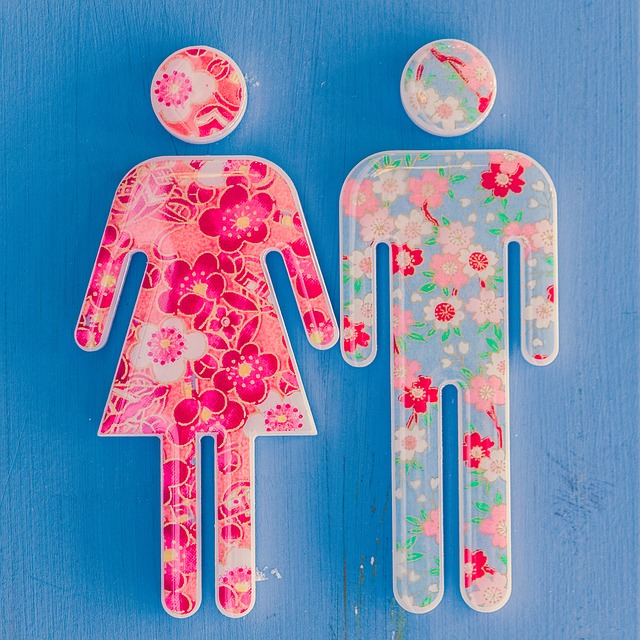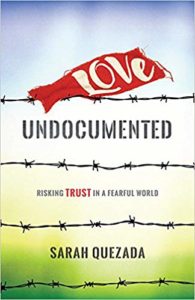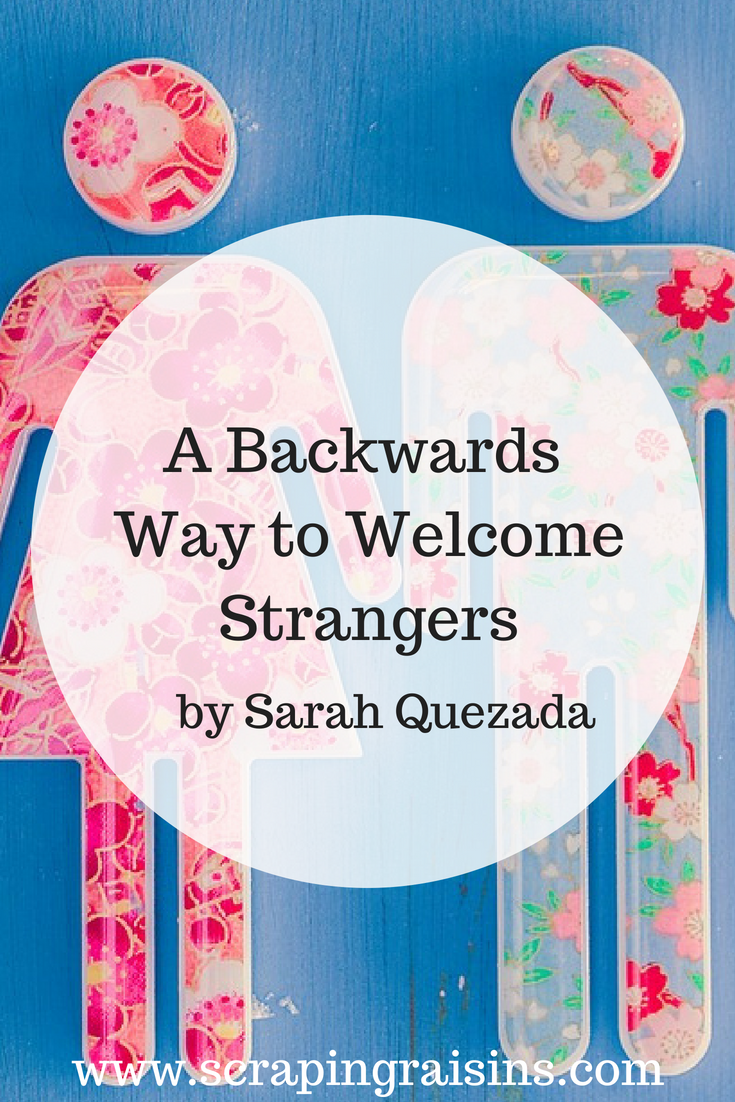
by Sarah Quezada | Twitter: @SarahQuezada
I walked timidly up to the counter at the bus station. I needed to know where the bathroom was located. And while I may have been overwhelmed here in the first hours of my time in a new country, surely my mediocre high school Spanish had been waiting for this very moment. Donde esta el bano? I was prepared.
The man behind the counter smiled at me. I cleared my throat and executed my most confident Spanish question. As it turns out, I was not prepared for his response. A frozen grin crystalized on my face as he gave me detailed and lengthy directions to the restroom. I nodded and walked away. I don’t recall every finding that bathroom.
Being in a new country, not speaking the language. These experiences are incredibly vulnerable. And while mine was born out of a sense of adventure, many people around the world find themselves forced to migrate and re-learn the world and words as they know it. It is not easy.
Most of us have a desire to welcome these immigrants and refugees well. If we’ve grown up in church, we’ve often heard how God instructs us to welcome the stranger. And beyond that, many of us feel a civic responsibility to be kind and nice to others. But what does that mean?
My husband immigrated to the United States from Guatemala in his late 20’s. In a recent conversation, someone asked him how we can better demonstrate welcome to new arrivals in this country. Among his responses, he said something I’d never considered before. “Go into their spaces.”
What? To my Southern sensibilities, that phrase feels intrusive. When I think about being welcoming, I consider having an “open door policy” for my own home, where people feel free to stop by, stay for dinner, or sit and talk awhile. I think about intentionally inviting others into my space and being available to them if ever needed. But I’ve rarely considering foisting myself upon someone else as a welcoming gesture.
But my husband’s perspective was different. “Go into their businesses,” he said, “and spend your money there. Attend their churches. Play in parks in the areas of town where immigrants tend to gather.”
These acts, which involve me stepping into the vulnerable position of maybe not understanding the language or perhaps not picking up all the cultural clues, can be a gift and a sacrificial demonstration of welcome.I think back to my first visit to Guatemala and the man at the bus station. He was certainly welcoming. He was kind. He smiled. He gave me directions in response to my question. But I look back now and wonder how different it would’ve felt if someone had come to me, volunteered to give me directions in broken English, or walked me to the bathroom. It would’ve been more uncomfortable for them, but I certainly would’ve felt welcomed and cared for. I want to try to practice that kind of sacrificial welcome. I want to try going into their spaces.
About Sarah:
 Sarah Quezada is a writer living in a bicultural household in Atlanta, Georgia. She has a master’s in sociology and writes regularly at sarahquezada.com. She is the author of Love Undocumented: Risking Trust in a Fearful World (Herald Press, 2018). Click here to download her list of 15 ways you can support immigrants and address the migrant crisis today.
Sarah Quezada is a writer living in a bicultural household in Atlanta, Georgia. She has a master’s in sociology and writes regularly at sarahquezada.com. She is the author of Love Undocumented: Risking Trust in a Fearful World (Herald Press, 2018). Click here to download her list of 15 ways you can support immigrants and address the migrant crisis today.
***

BOOK GIVEAWAY
We’re giving away a FREE copy of Sarah’s book, Love Undocumented! To enter, visit either my Instagram post or Facebook post and tag up to four friends you think might be interested in her book. I’ll enter you once per friend that you tag. Giveaway will end next Wednesday, August 29th, at midnight (MT). No bots and only U.S. residents, please!
***
 The theme for August is “Homelessness, Refugees & the Stranger.” Follow along on social media (links in upper right) to keep up with the latest posts or sign up for the newsletter below for links to the most recent blog posts, thought-provoking articles from the web, and a few of the things I’m into these days.
The theme for August is “Homelessness, Refugees & the Stranger.” Follow along on social media (links in upper right) to keep up with the latest posts or sign up for the newsletter below for links to the most recent blog posts, thought-provoking articles from the web, and a few of the things I’m into these days.
Sign up for the (occasional) Mid-month Digest and the (loosely) “end of the month” Secret Newsletter for Scraping Raisins Here:
*This post includes Amazon affiliate links




